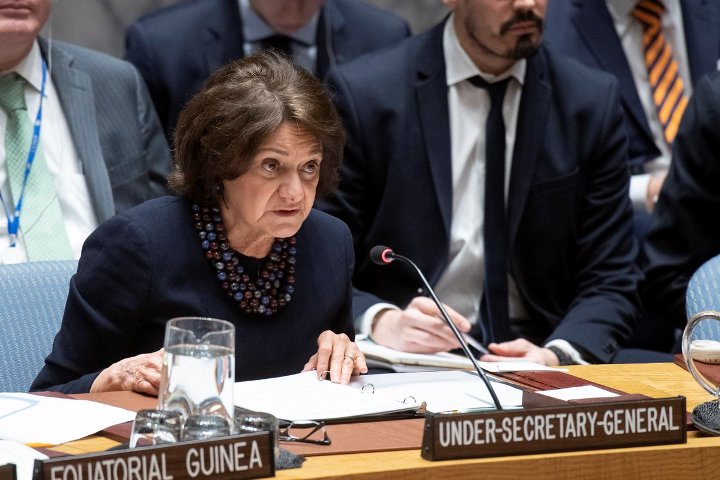Iran enriching ‘worrying quantities’ of uranium, in further blow for nuclear deal

No progress has been made on the implementation of a high profile 2015 Security Council resolution (2231), aimed at ensuring that Iran’s nuclear facilities be used only for peaceful purposes, in return for the lifting of sanctions, the UN Under-Secretary-General for Political and Peacebuilding Affairs, told the Security Council on Monday.
Rosemary DiCarlo said that the International Atomic Energy Agency (IAEA), has reported that Iran intends to install new centrifuges at one of its fuel enrichment plants, and plans to produce more uranium enriched up to 60 per cent, at another.
The agency, she continued, estimates that the country now has a total enriched uranium stockpile of more than eighteen times the allowable amount under the Joint Comprehensive Plan of Action (JCPOA), the nuclear deal that was developed in the wake of Resolution 2231, including “worrying quantities of uranium” enriched to up to 60 per cent.
The IAEA’s ability to effectively monitor Iran’s nuclear facilities and ensure that they are being used for exclusively peaceful purposes – a core element of the JCPOA – is now compromised, said Ms. Di Carlo, by Iran’s decision to remove the agency’s surveillance and monitoring equipment.
“Against this backdrop, we once again call on Iran to reverse the steps it has taken since July 2019 that are not consistent with its nuclear-related commitments under the Plan”, declared Ms. Di Carlo, who also called on the United States to lift or waive its sanctions as outlined in the deal, and to extend the waivers regarding the trade in oil with Iran.
‘Divergent views’
Ms. Di Carlo then turned to provisions in the Plan related to ballistic missiles and, in particular, two flight tests of space launch vehicles conducted by Iran in June and November of this year, and a new ballistic missile unveiled by Iran in September.
Information received by the UN about this hardware reflected “divergent views” amongst certain Member States – France, Germany, Iran, Israel, the Russian Federation, the United Kingdom, and the United States – as to whether those launches and other activities are inconsistent with resolution 2231.
Ms. Di Carlo announced that the UN has inspected cruise missile parts, seized by the British Royal Navy in international waters south of Iran, which they assessed to be of Iranian origin, which resembles parts seen in the debris of cruise missiles used by the Houthis against Saudi Arabia and the United Arab Emirates between 2019 and 2022, and those seized by the United States in 2019.
The UN, she continued, has also received letters from Ukraine, France, Germany, the UK and US, concerning alleged transfers of unmanned aerial vehicles (UAVs), from Iran to the Russian Federation, in a manner inconsistent with Resolution 2231.
However, the Permanent Representative of Iran, she said, has denied that his country had supplied UAVs for use in the conflict in Ukraine; whilst Russia has also expressed its serious concerns regarding the requests of these Member States.
In addition, continued Ms. Di Carlo, Ukraine, France, Germany, the United Kingdom and the United States have alleged that some of the UAVs transferred by Iran to the Russia, were manufactured by an entity on a list of individuals and entities who, under Resolution 2231, fall under targeted sanctions.
The political and peacebuilding chief declared that the UN is examining the available information and will report back to the Council, as appropriate, in due course.
ALSO READ
Mohsin Naqvi Takes the Helm as President of Asian Cricket Council
Mohsin Naqvi Takes Helm at Asian Cricket Council
Trump moves to fire several National Security Council officials over concerns they're not sufficiently loyal: AP sources.
U.S. Influence Persists at U.N. Human Rights Council Despite Withdrawal
Karnataka Legislative Council Seats Stir Political Strategy Talks










